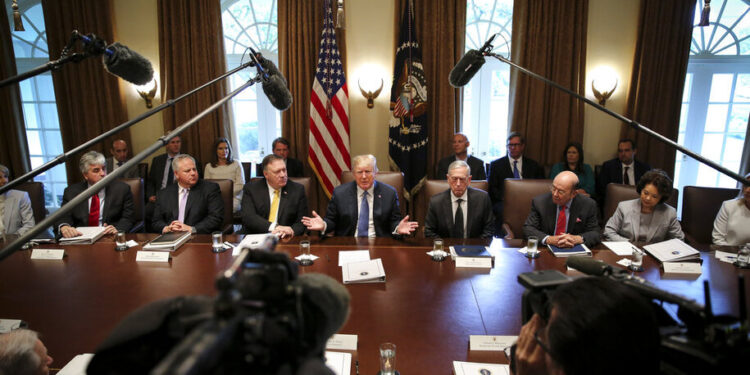By Margaret Huang, president and CEO of the Southern Poverty Law Center
The next Trump administration is rapidly taking shape, with several key nominations announced that will chart the future of our nation. Like many other civil and human rights organizations, the Southern Poverty Law Center is closely monitoring the president-elect’s picks, as they will have significant authority to determine how civil rights laws will be enforced.
A strong federal government is essential to ensuring that the rights guaranteed by the Constitution are both protected and applied equally to all Americans and to providing vital resources and services to the most vulnerable populations. In arenas such as housing, education, criminal justice, health care, and more, civil rights laws protect against discrimination and ensure equal opportunity. However, we are concerned that the incoming administration will seek to shift power to individual states and abandon the federal government’s responsibilities to protect everyone’s rights.
As an organization that was born in Alabama to support and advance the Civil Rights Movement, the SPLC uniquely understands the dangers that this transfer of authority to state governments can pose, particularly for Black and Brown communities. Throughout U.S. history, the federal government has repeatedly needed to intervene when states denied their residents of color justice by allowing discrimination to persist.
As an example, in the wake of the 2013 Supreme Court decision in Shelby County v. Holder that gutted the Voting Rights Act of 1965, we have seen the consequences of weakening the federal government’s ability to address racial discrimination in voting. Over the last decade, state lawmakers have introduced hundreds of bills designed to silence the voices, votes, and power of people of color, particularly in the Deep South.
Government agencies play a vital role in the pursuit of a more equitable and just society for all, whether that’s by guaranteeing Black farmers the same access to federal financial assistance programs as white farmers or ensuring students have the resources they need for a high-quality education regardless of race, gender or ethnicity. Therefore, we are calling on the president-elect to review his nominations for the leaders of government agencies and consider only highly qualified individuals who demonstrate the following attributes:
A deep commitment to the rule of law and the independence of their respective agency from political influence, maintaining impartiality.
Professional expertise and deep experience in the areas of work that they will oversee and lead at their respective agency.
High ethical and moral standards, with no political or personal ties to white nationalist or extremist individuals and/or organizations.
A track record of aggressively and affirmatively enforcing federal law, particularly civil rights laws to protect communities, as well as a commitment to safeguarding the agency against the weaponization of federal law and policy to target Black people and other historically marginalized communities.
Willingness to defend against dilution or weakening of federal laws and against unnecessary funding or staffing cuts.
An understanding of the traditions and operations of the agency they are leading, and the ability to effectively manage a large organization.
Respect for the role of government and the important role that career public servants play in the mission of the agency and the intended impact of its work to improve the lives of the American people.
A strong sense of responsibility to the historic mission of ensuring that our nation lives up to its promise of equality and justice for all.
The federal government can be a formidable force in protecting our communities when it uses its power effectively and ethically. For example, the Department of Justice’s “United Against Hate” initiative has produced significant progress in state and local hate crime awareness. The initiative has helped build better relationships and trust between local communities and law enforcement—essential ingredients in the effective response to hate violence, which the FBI reports is at an all-time high. For people who have historically faced discrimination, hate crime prevention and training programs make a real difference in whether they feel safe and welcome living in their communities.
The federal government is also the essential power in holding bad actors accountable. The DOJ’s Civil Rights Division often acts as a backstop when state and local law enforcement agencies directly violate the rights of U.S. citizens or fail to act when a member of law enforcement does so. A clearly compelling example was the case of a local prosecutor in Louisville, Kentucky, choosing not to charge the officers responsible for the tragic death of Breonna Taylor. Many DOJ investigations have resulted in settlements and orders that increase transparency, require more effective law enforcement training, reduce discriminatory policing, and require independent oversight of agencies. For Black and Brown people in this country, these investigations can be their last avenue to obtain justice and force necessary change.
The next attorney general, secretary of Housing and Urban Development, secretary of Homeland Security, secretary of Education, and every other appointed official must respect the role that the federal government plays in safeguarding every American’s rights. We stand ready to champion those who demonstrate this commitment and to oppose those who do not meet the high bar required for these appointments. We hope you’ll join us.
The Southern Poverty Law Center is a catalyst for racial justice in the South and beyond, working in partnership with communities to dismantle white supremacy, strengthen intersectional movements, and advance the human rights of all people. For more information, visit www.splcenter.org.


